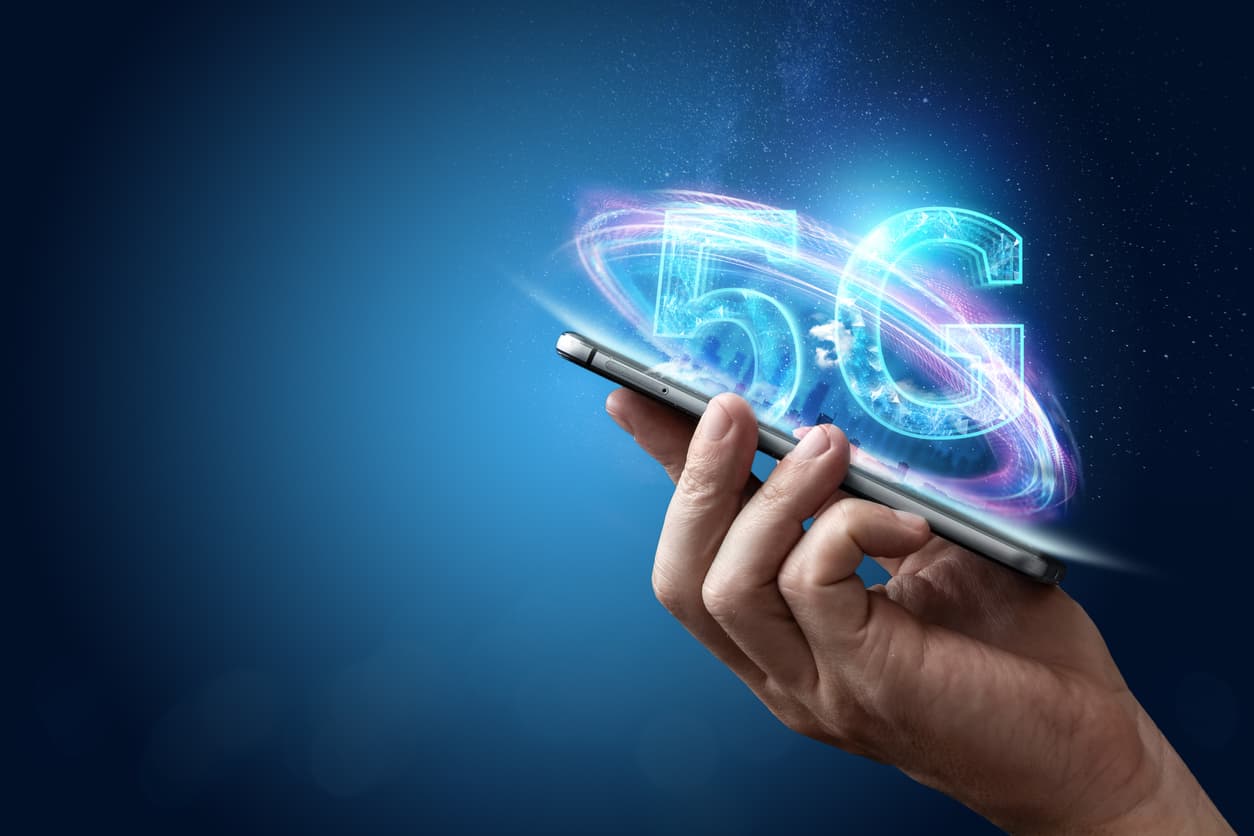5G is almost here and will change the telecommunication industry, and the businesses it serves, for good.
Key Takeaways- There will be more volumes of data transferred over 5G
- 5G will manage devices and sensors
- 5G will improve call quality
- 5G will improve mobility
- 5G will improve immersive experiences
7 ways 5G technology will change businesses
5G is designed to be outcome-driven, and there are many ways the technology will transform business.- Transporting growing volumes of data: In the modern world, time is of high value. 5G will help users save time even more by helping them transport vast volumes of data in seconds utilizing the enhanced mobile broadband (eMBB) technology.
- 5G will help manage devices and sensors: Users need to be able to manage an increase in the number of sensors to run a smart factory. Massive machine-type communications (mMTC) can handle the billions of sensors and enable them to communicate in a more effective and less restricted manner.
- 5G will be used in mission-critical applications: Ultra-reliable low-latency communications (URLLC) will run applications that require super-fast speeds. For example, the technology will help address the challenges of autonomous cars since such cars need reliable low-latency networks. After all, a few seconds' delays can compromise the safety of pedestrians or lead to significant losses.
- 5G improves call quality: Call quality issues will see a significant improvement as a result of 5G. The 5G technology fixes the latency issues of 4G that lead to low-quality calls.
- More effective communication: Using 5G technology, telecoms can acquire data, analytics, and research to improve the customer and user experience. Companies in the telecommunications industry can broadcast HD videos for product training. Using video conferencing, customers and telecommunication service providers can interact to resolve issues and strengthen connections.
- Better mobility: 5G enables instant connections and real-time data exchange to answer customers' problems on the go. It also communicates with several devices simultaneously, resulting in an improved client experience.
- More personalized customer journeys: 5G will enable rapid data transfer. Data will be accumulated, retrieved, and operationalized at unimaginable rates and volumes. The intelligence of AI tools learning from this data will increase significantly. In the 5G future, connectivity between organizations and consumers will dramatically improve.
5G will improve immersive experiences
VR or AR users become agitated if there is a delay of more than 20 milliseconds. The typical 4G latency is even lower. 5G significantly reduces latency, so Virtual and Augmented reality can analyze images quicker than the human brain. The simulation will be realistic and feasible. Top e-commerce sites are already utilizing augmented reality to help buyers imagine how furniture will fit in their home or how a particular color would look in their eyes. 5G will revolutionize the client experience by offering an unparalleled level of immersion that will affect everything from clothing purchasing to real estate transactions. Because VR and AR captivate customers' attention and elicit their emotions more than any other media, this innovation has the potential to increase brand engagement.Is 5G better than Wi-Fi?
In comparison to Wi-Fi and other networking technologies, 5G has several benefits. Two vital advantages include:- 5G is much faster than Wi-Fi. Its download speeds average 600 Mbps but can exceed 10 Gbps in ideal conditions. On the other hand, Wi-Fi has a download speed of around 80mbps.
- Private 5G's range is around eight times further than current Wi-Fi signals, with lower latency and better reliability than previous mobile networking technologies.
